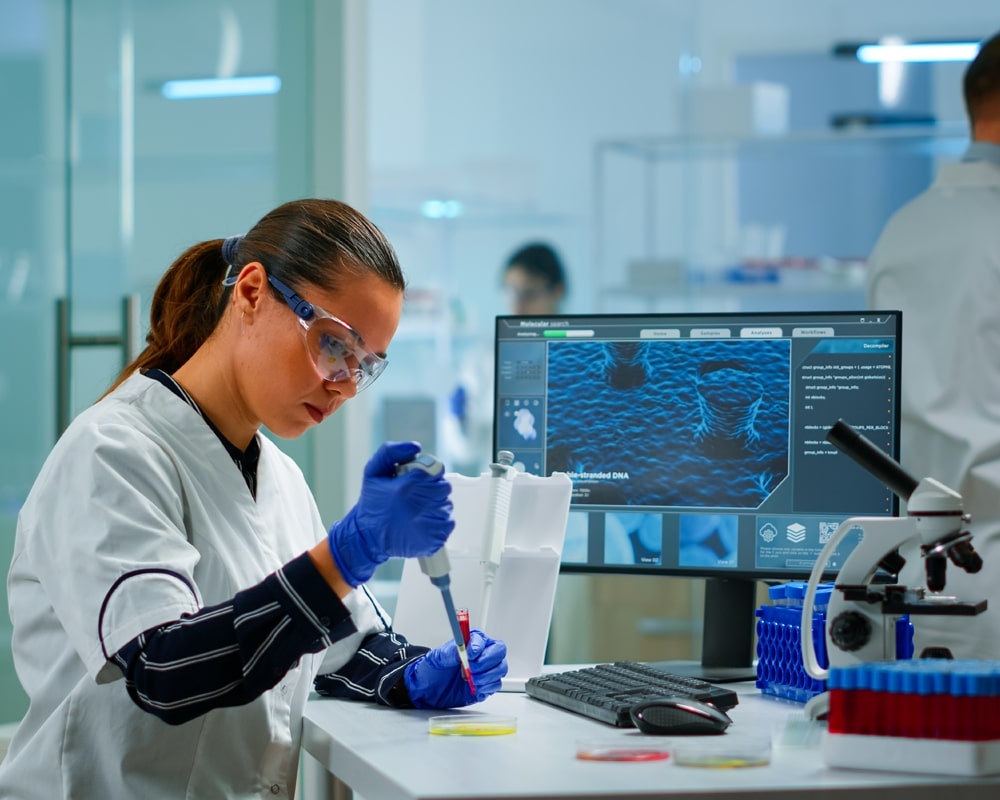


November 17, 2022 Jake Carl Operations , Business ,
A version of this Blog was first published on the T-Hub.
Hyperautomation primarily focuses on combining additional intelligence to adopt a more effective system-based approach to the growing automation initiatives. It stresses the significance of striving to strike the best possible balance between replacing human effort and optimizing difficult stages.
It can be refined for various automation processes by humans to increase quality, efficiency, and performance. Primary advantages of hyper-automation include improved business alignment, lower automation costs, improve effective governance, and improved security.
Hyperautomation in Healthcare sector merges numerous machine learning and automation tools to improve the quality and efficiency of basic healthcare tasks. With a significant increase in automation, hyperautomation allows sophistication of the stages in automation along with the sophistication of a spectrum of instruments. It unifies different automation strategies to create and optimize end-to-end automation services that make way to unlock the new potential for automated systems and laboratories.
Automation has a significant influence on the full gamut of healthcare operations, including patient data management, claims processing, customer service, and patient-HCP interaction. The cutting-edge technology powering the worldwide digital transition is hyperautomation. Hyperautomation, as described by Gartner, is a leading strategic technology trend. In addition to integrating several platforms and technologies, it uses Artificial Intelligence, Robotic Process Automation Machine Learning, and Business Process Management, Low-code/No-code tools, among many others, to automate complex business processes. Hyperautomation focuses on building a mechanism for automating automation. The hyperautomation framework in healthcare prioritizes sophisticated technologies to scale up automation.
The primary elements of hyperautomation include:
The Healthcare industry always focuses on delivering the best possible service to patients. The use of digital transformation technology in healthcare enables all healthcare organizations to go digital and turn their digital assets into strategic advantages. As automation is scaled up and patient access to treatment is redefined, hyperautomation improves the value of both data and human knowledge while also having a favourable influence on health outcomes.
The following are a few examples of intelligent automation use cases that are popular in the healthcare regulatory & compliance space:
Hyperautomation can provide end-to-end automation for a wide range of everyday healthcare processes. Healthcare digital labs can achieve better results by using clinical and enhanced operational procedures when data-driven insights are successfully integrated. Furthermore, reliable and cost-effective measurements can help to improve therapeutic results. According to a McKinsey report, all automation use cases in healthcare combined are predicted to generate an annual value of $350 billion-$410 billion by 2025. Let’s have a look at some of the applications of automation in healthcare.
Hyperautomation can help in medical diagnosis. Using machine learning and computer vision technology, doctors can properly analyze radiological scans and offer rapid results. Robotics and sophisticated software systems are used in lab automation to automate instruments in lab procedures. Automated solutions enable lab staff to do time-consuming activities more quickly, eliminate lab waste, and enhance overall efficiency. Finally, better efficiency and minimum human inputs assist clinics in cutting expenses.
Many healthcare institutions throughout the world have implemented Hyperautomation. CVS Health, a US healthcare corporation, is a good example. It deployed Hyperautomation in its administrative system, automating several manual tasks such as generating application receipts, and payments and resolving client requests. In addition to accelerating corporate agility, it has reduced the risk of human mistakes and assured regulatory compliance.
Use cases of Hyperautomated Labs Include -
The most notable advantages of hyperautomation in transforming healthcare labs include:
To achieve more accurate results, healthcare professionals (healthcare labs) are continually searching for novel solutions. While automation is a ground-breaking approach to several problems in the healthcare industry, it has inherent limitations even though it increases overall agility, efficiency, and productivity. The healthcare industry may effectively close the gap between developing practical healthcare solutions and implementing them thanks to the introduction and adoption of hyperautomation as a disruptive technology in the healthcare industry.
JK Tech has established itself as a leader in offering end-to-end automation services. We guarantee a flawless hyperautomation strategy and solution based on our extensive expertise in adapting and operationalizing automation. Boost your brand’s competitiveness with tailored hyperautomation services!


Hello, I am Aria!
Would you like to know anything in particular? I am happy to assist you.